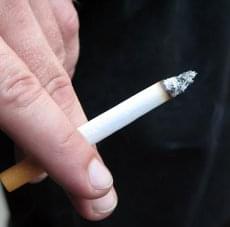Fewer and fewer people are forced to suffer from the harmful effects of passive smoking in Hungary
The smoking habits of young people in Hungary aged between 13-15 years have been studied for the third time as part of a WHO international research project.
 The results published today show that thanks to legislation protecting non-smokers, as well as to numerous recently-launched EU-funded projects, fewer and fewer young people are forced to suffer from the harmful effects of tobacco smoke.
The results published today show that thanks to legislation protecting non-smokers, as well as to numerous recently-launched EU-funded projects, fewer and fewer young people are forced to suffer from the harmful effects of tobacco smoke.
On 1 January 2012, the amendment of the Act on the protection of non-smokers entered into force in Hungary, and introduced stricter requirements for smoking. In practice, this means that, except for a few special cases, the regulation bans smoking indoors, as well as in certain outdoor areas.
Smoking is perhaps the most significant public health issue in Hungary, the number of cigarettes smoked annually per capita exceeds two thousand. It is the Government’s firm intention to reverse this trend. According to international experience, these figures can be significantly reduced through regulations that restrict smoking.
Related news
Related news
Forced paths: trends and decisions in 2026
🎧 Hallgasd a cikket: Lejátszás Szünet Folytatás Leállítás Nyelv: Auto…
Read more >NGM-VOSZ cooperation agreement for digital commerce security
🎧 Hallgasd a cikket: Lejátszás Szünet Folytatás Leállítás Nyelv: Auto…
Read more >






